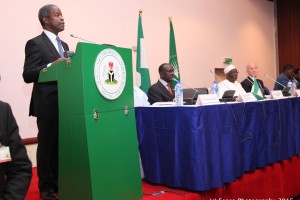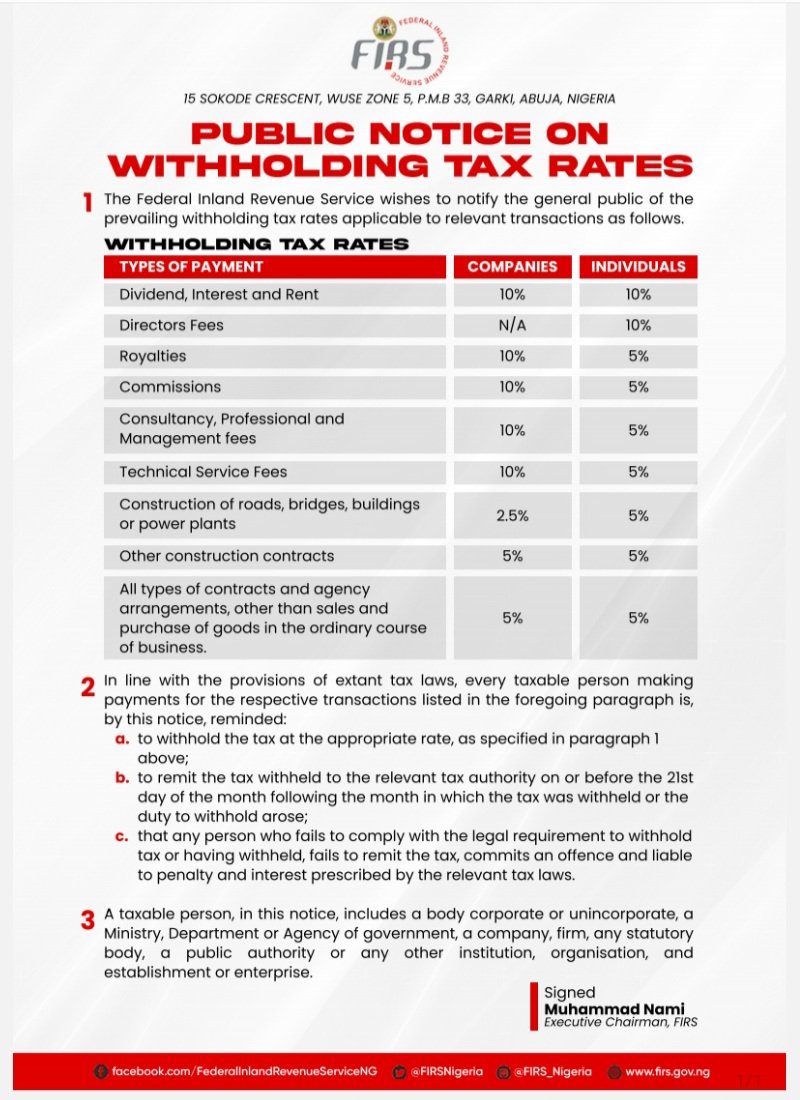
Vice President Yemi Osinbajo is still wondering aloud how Nigeria was able to navigate out the rough economic waters and recession after what the country have gone through what he called, “unbridled corruption on a scale that was unprecedented anywhere in the world.
“It is important that we emphasize it so we don’t walk this way again. The figures speak for themselves. Between 2013 and 2015, with oil prices averaging up to $110 per barrel, sometimes going to as high as $150, the government of the day somehow contrived to increase national debt from N7.9 trillion to N12.1 trillion while reducing external reserves from $45 billion to $28 billion as of May 2015.
“Of course, we all know that there was very little by the way of investment in infrastructure and capital projects. In fact, in 2015, capital spending was less than 11%. So there was very little to show for where this money went.
“I don’t want to keep repeating some of the incredible things that happened, a few weeks before the last elections; how large sums of money, a 100 billion in cash ostensibly for security. “Another $289 million in cash was paid out in the same period. No country can survive that kind of unbridled waste and corruption. We must never forget that corruption is perhaps, the most outrageous cause of our economic decline.
“Aside from barefaced stealing or waste of resources, the inflation of contracts and other procurements ensures that the cost of infrastructure necessary for development will always be unaffordable. So if what we should spend on building a 200 km road ends up being spent on a 20 km road, there is no way we are going to make any progress and there is no way we won’t end up in some kind of economic decline or the other.”
Professor Osinbajo, who spoke today, Monday at Legislative Economic Summit in Abuja, recalled how Nigeria got into a recession in the first place, listing three reasons for it.
“One: we were running an unstable economic structure. Oil alone contributed 70% of budgetary revenues and 90%, perhaps more than that, of our foreign exchange revenues.
“Up to 50-53% of the non-oil sector was dependent on the oil sector. Consequently, the fortunes of up to 60% of the Nigerian economy, rested on this volatile sector. This shaky foundation was masked in the past by high oil prices, but as soon as oil prices fell, the weakness showed.
“The second weakness in our economic structure is that it had mainly been consumption driven with a high propensity to import. Worse still, we were importing food, food that we could grow. Our unsustainable food importation bill at some point, was over N1trilion, it was particularly damning for the economy as foreign exchange revenues dried up.”
Speaking on the Summit’s Theme: Legislative Framework for Economic Recovery and Sustainable Development, Vice President Osinbajo insisted that the story of the Nigerian recession must be told often, and more importantly, truthfully. He said that the bottom-line is to ensure that never again, should the country experience the horrors and deprivations of a recession, even as he said that the country cannot afford another recession, not now or in the future.
He recalled that in 2015, oil prices fell to as low as $28 at some point, and that throughout 2016, the country lost almost a million barrels a day in oil production due to vandalization and sabotage of oil facilities and pipelines. “We lost something in the order of about 60% of our revenues. Yet we could have survived without going into a recession, I think Dr. Teriba so ably stated that, we could have survived if we had savings. But we had no savings only debt.
As economists would say, and as Dr. Teriba had said, we did not have the fiscal buffers to enable a counter-cyclical approach. In other words, we lacked the savings to see us through the lean times. Why? Why did we lack savings, when so much money was being made? This is the elephant in the room.”
The Nigerian second-in-command expressed satisfaction however that, today, despite the 60 percent or even more reduction in revenues from oil, the federal government has been able to bail out the States even as capital spending in 2016 was close to N1.3 trillion, the highest yet in the country’s history.
He made it clear that with more prudent management, it is possible to do more with far less money.
Looking at what he called two of the other major causes for the deepening of the recession, such as the intractable delays in the budget approval process and the long procurement processes, Professor Osinbajo argued that if the budget process takes up to five months of the financial year and procurement is another three months, the economy will continue to be at a standstill for most of the year.
“The truth is that no developing economy can afford the luxury of prolonged executive/legislative wrangling over the budget. Developed economies with strong and independent private sectors may be able to cope, but Nigeria simply cannot.
“Budgetary delay in a situation of national economic emergency, and the hardship encountered by so many, is simply wrong and unacceptable. Neither the executive nor the legislature can excuse itself. It is wrong for us to hold up the budget for that long. The delays of course, will ensure that money will not flow into the economy, and that capital projects will not be done.”
Osinbajo said that the federal government believed that the solution to getting Nigeria out of recession requires focused and determined leadership to take immediate and long-term measures to tackle the weak economic foundations.
“This found expression is in the Economic Recovery and Growth Plan of Government.
“The recovery intended in the Plan was truly to take the economy out of recession, but in addition, it was to stem the slide in growth that occurred since 2014. We accordingly prioritized, actions to restore oil production at home through a New Vision for the Niger Delta, while working with our international partners to stabilize oil prices.
“The results are clear, with oil production now at 2million barrels per day (including condensates which are not part of the OPEC quota) and our external reserves now stand at about $34billion.
“A second plank of immediate actions taken was ensuring that consumption and investment did not contract any further. The Federal Government did paid its own salary obligations and extended support to the States to pay the backlog of salaries.” [myad]








